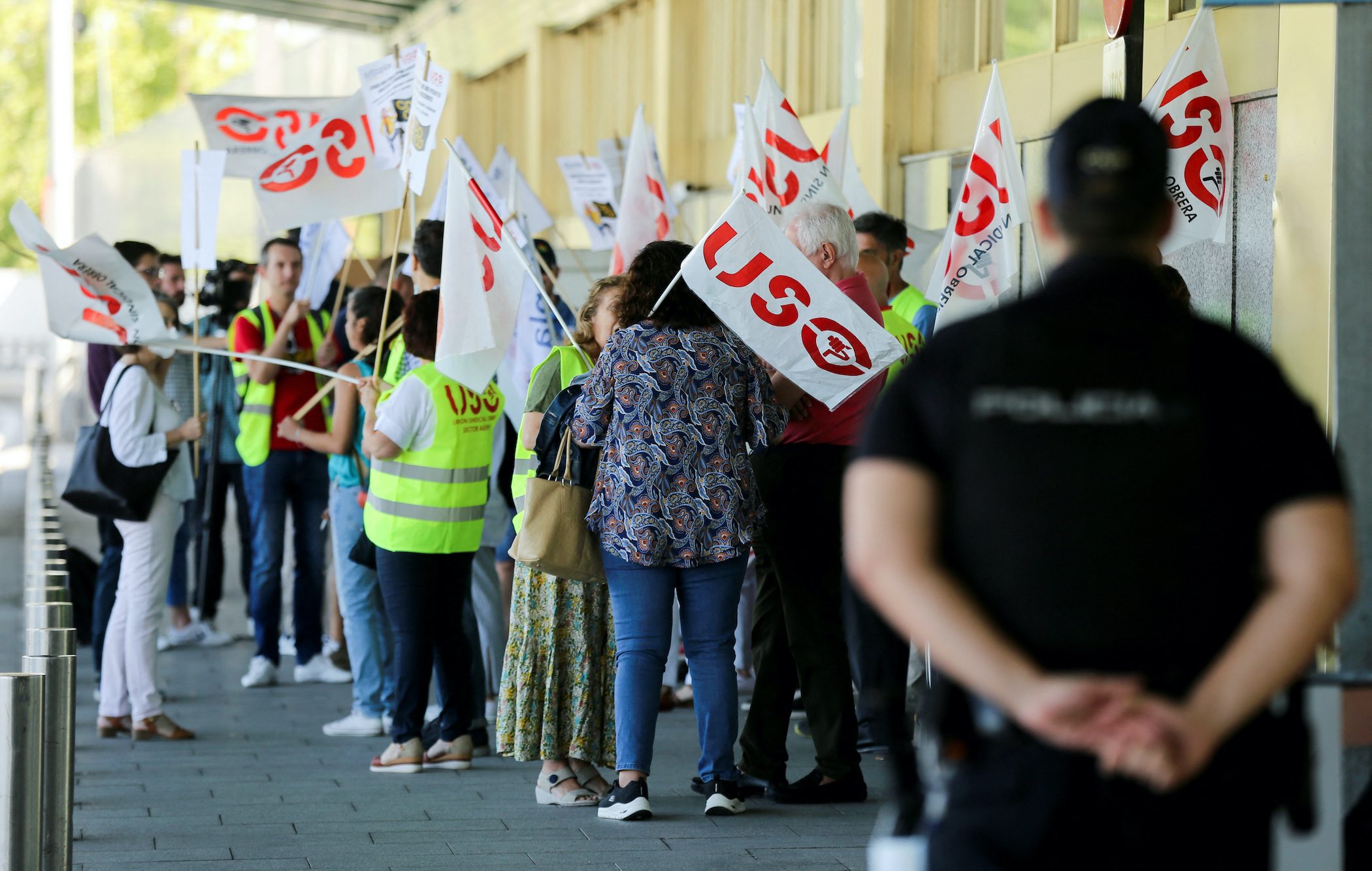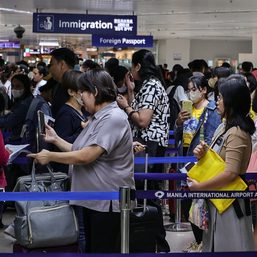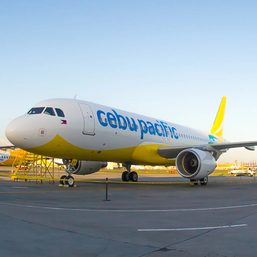SUMMARY
This is AI generated summarization, which may have errors. For context, always refer to the full article.

Some cabin crew at Ryanair went on strike in Belgium, Spain, and Portugal on Friday, June 24, in a dispute over pay and working conditions, the latest in a wave of walkouts staged by workers across different sectors in Europe.
Surging inflation across the continent has led to millions of workers struggling with rising costs of living, prompting trade unions to demand higher wage increases, often backed by strike calls.
Airlines and airport operators have also struggled with staff shortages to handle the flow of passengers as demand for travel bounces back with the end of most COVID-19 restrictions. Workers at several other airlines, including British Airways, are also planning strikes this summer.
Ryanair cabin crew unions in Belgium, Spain, and Portugal called a three-day strike starting on Friday. Staff in France and Italy were expected to walk out over the weekend. Crews in Spain are set to strike again on Thursday, June 30, and Friday to Saturday, July 1 to 2.
Workers say the Irish airline does not respect local labor laws covering issues such as the minimum wage and urge Ryanair’s bosses to improve working conditions.
“Conditions are terrible,” said Ricardo Penarroias, president of SNPVAC, the union behind Portugal’s walkout. “A crew member is not even allowed to take a bottle of water on a flight.”
Ryanair told Reuters last week it had negotiated labor agreements covering 90% of its staff across Europe and that it did not expect widespread disruption this summer.
Wage-price spiral
Much of the labor unrest has focused on the transport sector as it deals with a return to travel after pandemic lockdowns.
French unions issued a joint call on Friday for a national railway worker strike on July 6 and a walkout has also crippled Britain’s rail network this week.
There are signs of the unrest spreading to other sectors – French trade union CGT organized a one-day strike on Friday to seek higher wages for oil refinery workers after talks with operator TotalEnergies broke down.
With inflation running at more than 8% in the euro area, a 40-year-high of 9.1% in Britain, and in double digits across some central and eastern European economies, authorities are worried of a wage-price spiral developing in which higher wage demands add to inflationary pressures.
European Central Bank chief Christine Lagarde has warned that the longer inflation remains high, the more likely it will influence wage negotiations.
Pilot and cabin crew unions of Brussels Airlines, the Belgian subsidiary of Lufthansa, also started a strike on Thursday, June 23. Over the three days, Brussels Airlines expects to cancel about 60% of its 533 flights.
Ryanair said in a statement fewer than 2% of its 3,000 flights on Friday had so far been affected by the strikes, mainly due to what it described as “minor disruptions” in Belgium.
“Ryanair expects over 98% of its 3,000 daily flights will operate normally on Saturday and Sunday (June 25 and 26),” a figure that included disruptions from strikes by cabin crew and French air-traffic control operators, and from airport staff shortages, it said.
Local media in Belgium said 127 flights at Charleroi airport would be canceled, affecting 21,000 passengers. Ten additional Ryanair flights per day were set to be canceled at Brussels airport.
Workers’ right
In Lisbon, two flights were canceled on Friday so far, both to Brussels. A total of 18 Ryanair flights between Brussels and Spanish cities were canceled on Friday and Saturday, Spain’s cabin staff union, USO, said.
USO said five flights from the French city of Marseille and one from Bordeaux to tourist destinations in Spain such as Ibiza and Palma de Mallorca were cancelled this weekend.
In Spain, the government forced the company to operate 73% to 82% of flights over the strike period to maintain minimum services, obliging most to go to work.
Ernesto Iglesias, from USO, said the government’s decision limited workers’ right to strike.
A small group of Ryanair workers used their time off to join demonstrations at the airports of Valencia and Barcelona. One protester held a sign saying: “The Spanish government is an accomplice of Ryanair.”
Commenting on the situation in Spain, Ryanair’s chief executive officer Eddie Wilson said workers there demanded a 165% salary increase.
The SNPVAC union said not many flights would be canceled from Portuguese airports because the airline placed strikers on standby and asked cabin crew in other countries to replace them. Ryanair has said SNPVAC only represented 3% of its staff in Portugal.
Outside Lisbon airport, American Michael Rossides, 59, said he booked an EasyJet flight because he thought Ryanair would cancel but that ended up not happening.
“We have wasted a fair amount of time, an extra couple of hours, and a few hundred dollars,” he said. – Rappler.com
Add a comment
How does this make you feel?










There are no comments yet. Add your comment to start the conversation.